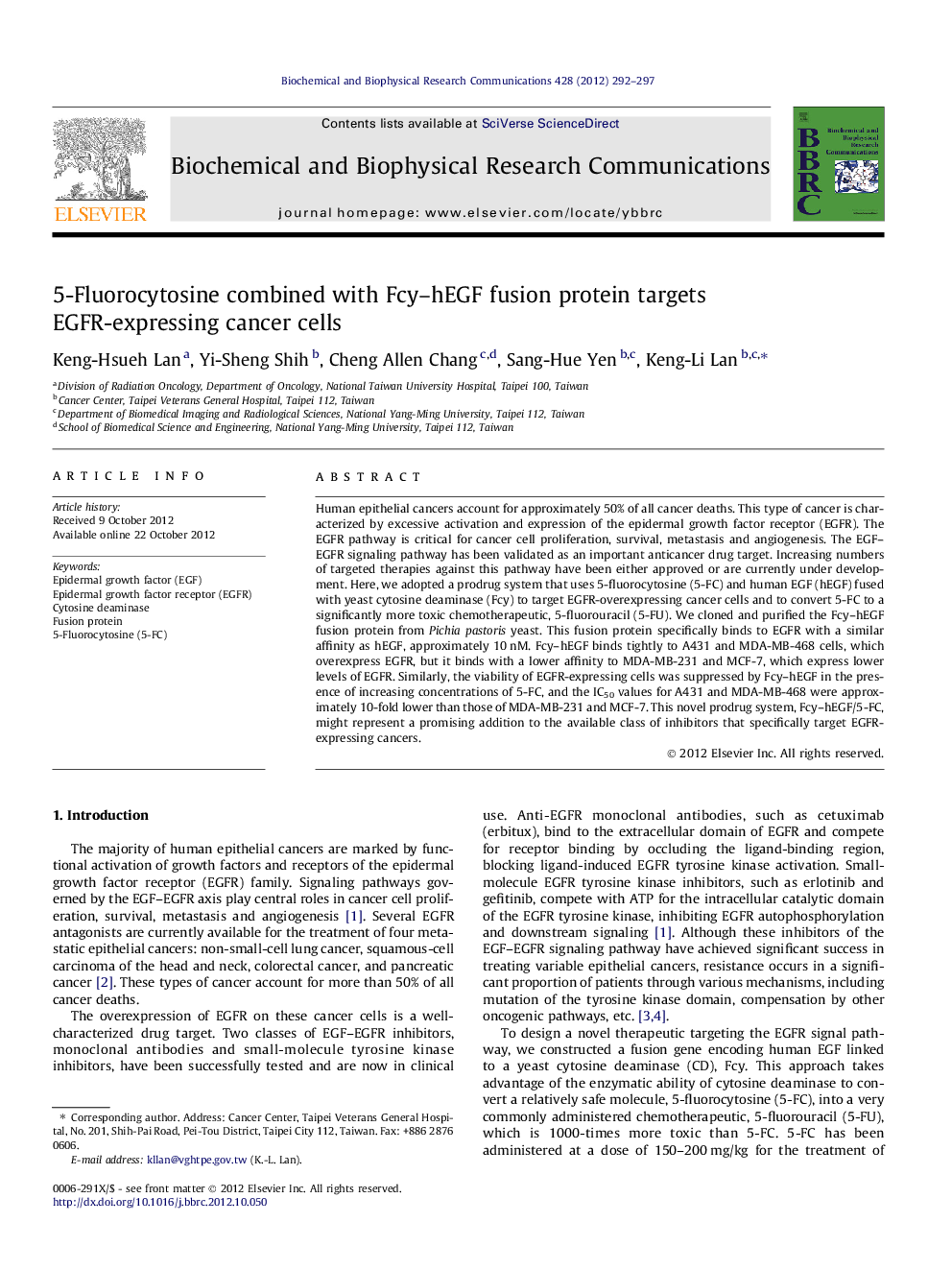| Article ID | Journal | Published Year | Pages | File Type |
|---|---|---|---|---|
| 1929414 | Biochemical and Biophysical Research Communications | 2012 | 6 Pages |
Human epithelial cancers account for approximately 50% of all cancer deaths. This type of cancer is characterized by excessive activation and expression of the epidermal growth factor receptor (EGFR). The EGFR pathway is critical for cancer cell proliferation, survival, metastasis and angiogenesis. The EGF–EGFR signaling pathway has been validated as an important anticancer drug target. Increasing numbers of targeted therapies against this pathway have been either approved or are currently under development. Here, we adopted a prodrug system that uses 5-fluorocytosine (5-FC) and human EGF (hEGF) fused with yeast cytosine deaminase (Fcy) to target EGFR-overexpressing cancer cells and to convert 5-FC to a significantly more toxic chemotherapeutic, 5-fluorouracil (5-FU). We cloned and purified the Fcy–hEGF fusion protein from Pichia pastoris yeast. This fusion protein specifically binds to EGFR with a similar affinity as hEGF, approximately 10 nM. Fcy–hEGF binds tightly to A431 and MDA-MB-468 cells, which overexpress EGFR, but it binds with a lower affinity to MDA-MB-231 and MCF-7, which express lower levels of EGFR. Similarly, the viability of EGFR-expressing cells was suppressed by Fcy–hEGF in the presence of increasing concentrations of 5-FC, and the IC50 values for A431 and MDA-MB-468 were approximately 10-fold lower than those of MDA-MB-231 and MCF-7. This novel prodrug system, Fcy–hEGF/5-FC, might represent a promising addition to the available class of inhibitors that specifically target EGFR-expressing cancers.
► EGFR-expressing epithelial cancers account for significant portion of cancer deaths. ► EGF–EGFR signaling pathway is validated as an important anticancer drug target. ► EGF and Fcy fusion protein (Fcy–hEGF) can bind to EGFR and convert 5-FC to 5-FU. ► Fcy–hEGF combined with 5-FC preferentially inhibits EGFR-expressing cells viability.
